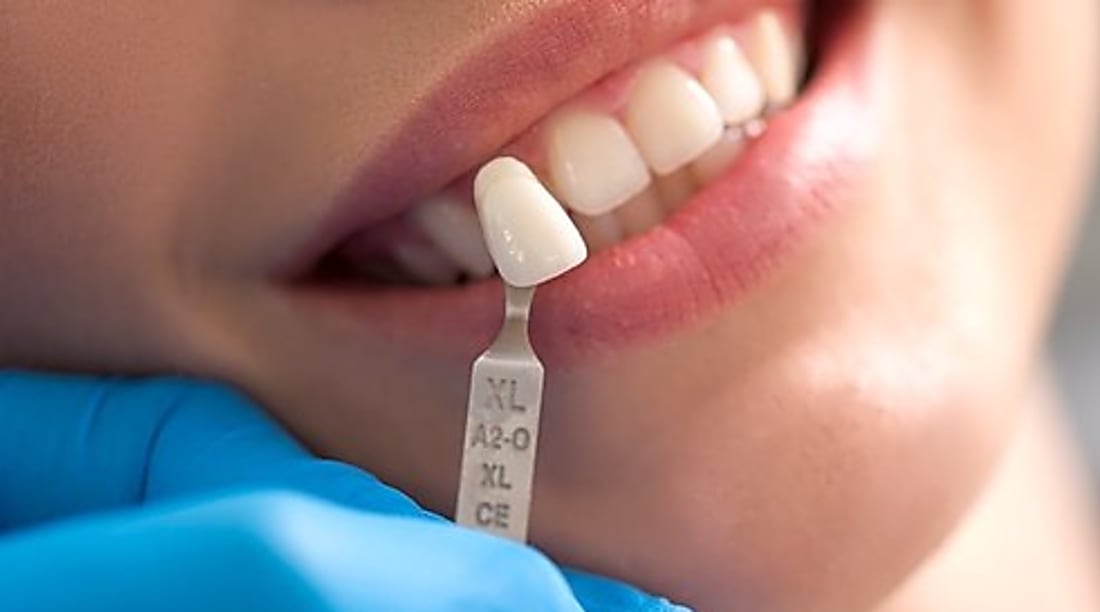Dental Veneers Explained: Costs and How to Achieve a Brighter, More Confident Smile
Dental veneers have become increasingly popular as a cosmetic dental solution for achieving a perfect smile. These thin, custom-made shells are designed to cover the front surface of teeth, addressing various aesthetic concerns from discoloration to minor misalignment. Understanding the process, costs, and benefits can help you make an informed decision about whether veneers are right for your smile transformation goals.

Dental veneers represent one of the most effective cosmetic dental treatments available today, offering patients the opportunity to dramatically improve their smile’s appearance. These wafer-thin shells, typically made from porcelain or composite resin, are bonded to the front surfaces of teeth to create a natural-looking, aesthetically pleasing result. Whether you’re dealing with stained, chipped, or slightly misaligned teeth, veneers can provide a comprehensive solution that enhances both appearance and confidence.
What Exactly Are Dental Veneers?
Dental veneers are custom-fabricated shells that cover the visible portion of your teeth. Made primarily from porcelain or composite materials, these ultra-thin coverings are designed to mimic the natural appearance of tooth enamel while providing superior strength and stain resistance. Porcelain veneers are considered the gold standard due to their durability and ability to reflect light similarly to natural teeth. They can address multiple cosmetic concerns simultaneously, including severe discoloration that doesn’t respond to whitening treatments, minor gaps between teeth, worn-down enamel, and irregularly shaped or sized teeth.
The material choice significantly impacts both the appearance and longevity of your veneers. Porcelain veneers typically last 10-15 years with proper care, while composite veneers may require replacement after 5-7 years. However, composite options offer the advantage of being more affordable and requiring less tooth preparation during the initial procedure.
The Step-by-Step Veneer Process Explained
The veneer placement process typically requires two to three dental visits spread over several weeks. During your initial consultation, your dentist will evaluate your oral health, discuss your aesthetic goals, and determine if you’re a suitable candidate for veneers. This assessment includes examining your bite, gum health, and the condition of your existing teeth.
The preparation phase involves removing a small amount of enamel from the front surface of your teeth, usually about 0.5 millimeters. This step is necessary to accommodate the veneer thickness without making your teeth appear bulky. Local anesthesia is typically used to ensure comfort during this process. Your dentist will then take detailed impressions of your prepared teeth, which are sent to a dental laboratory for custom veneer fabrication.
While waiting for your permanent veneers, temporary veneers may be placed to protect your prepared teeth and maintain aesthetics. Once your custom veneers are ready, usually within 2-3 weeks, you’ll return for the final bonding appointment. Your dentist will carefully check the fit, color, and shape before permanently cementing the veneers to your teeth using a special dental adhesive.
Cost Comparison and Pricing Insights
The cost of dental veneers varies significantly based on several factors, including the type of material chosen, the number of teeth being treated, and your geographic location. Understanding these cost variations can help you budget appropriately for your smile transformation.
| Veneer Type | Provider Type | Cost Estimation (CAD) |
|---|---|---|
| Porcelain Veneers | General Dentist | $1,000 - $2,500 per tooth |
| Porcelain Veneers | Cosmetic Specialist | $1,500 - $3,000 per tooth |
| Composite Veneers | General Dentist | $400 - $1,200 per tooth |
| Composite Veneers | Cosmetic Specialist | $600 - $1,500 per tooth |
| Prepless Veneers | Specialized Clinic | $800 - $2,000 per tooth |
Prices, rates, or cost estimates mentioned in this article are based on the latest available information but may change over time. Independent research is advised before making financial decisions.
Several factors influence the final cost of your veneer treatment. The complexity of your case, the reputation and experience of your chosen dentist, and the specific techniques used all play a role in pricing. Many dental practices offer financing options or payment plans to make veneer treatment more accessible. It’s worth noting that while veneers are considered a cosmetic procedure, some dental insurance plans may provide partial coverage if the treatment addresses functional issues alongside aesthetic concerns.
Achieving Long-Term Success with Veneers
Proper care and maintenance are essential for maximizing the lifespan of your dental veneers. While veneers are highly durable, they require the same attention to oral hygiene as your natural teeth. Regular brushing with a non-abrasive toothpaste, daily flossing, and routine dental checkups will help maintain both your veneers and underlying tooth structure.
Certain habits can potentially damage veneers and should be avoided. These include biting hard objects like ice or fingernails, using teeth as tools to open packages, and grinding or clenching your teeth during sleep. If you have a history of teeth grinding, your dentist may recommend wearing a night guard to protect your investment.
With proper care, porcelain veneers can maintain their appearance and functionality for many years. The initial investment in quality veneers often proves worthwhile when considering the long-term benefits of improved confidence, enhanced smile aesthetics, and the durability of modern veneer materials. Regular maintenance appointments with your dentist will help ensure any minor issues are addressed promptly, extending the life of your veneers and maintaining optimal oral health.
This article is for informational purposes only and should not be considered medical advice. Please consult a qualified healthcare professional for personalized guidance and treatment.




